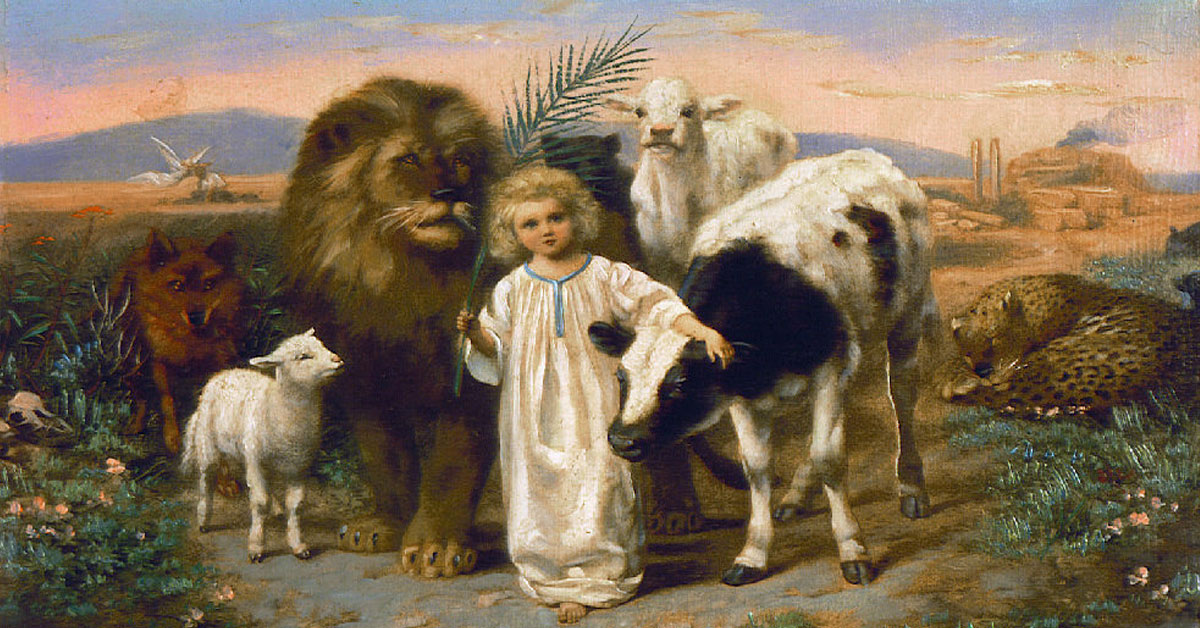Mark 1:14-15: “Now after that John was put in prison, Jesus came into Galilee, preaching the gospel of the kingdom of God, saying, The time is fulfilled, and the kingdom of God is at hand: repent ye, and believe the gospel.”
During his ministry, Jesus repeated taught about the “kingdom of God.” This term is used interchangeably with the “kingdom of heaven.” But it can be confusing, as Jesus spoke of it as applying indifferent times frames to different people.
The key is that the kingdom applies in two different phases:
Phase 1: The Present Spiritual Kingdom
- Jesus declared that the kingdom of heaven was at hand during his ministry (Matthew 4:17/Mark 1:14-15).
- The true church, consisting of faithful followers of Christ, is being developed in this phase.
- This kingdom is not a physical place but a spiritual process where believers are transformed to work alongside Jesus.
- The faithful will reign with Christ as kings and priests (Revelation 5:9-10).
Phase 2: The Future Earthly Kingdom
- Jesus taught his disciples to pray for the coming of God’s kingdom on earth (Matthew 6:10).
- This phase begins after the destruction of current worldly systems and the resurrection of all humanity (Daniel 12:1-4).
- The true church in heaven will help reconcile the earth and its inhabitants back to God.
- The Day of Judgment will be a time of rehabilitation, where people will learn righteousness and have the opportunity to choose eternal life (John 5:28-29).
- The earth will be restored, bringing peace, justice, and harmony (Isaiah 11:6-9, Micah 4:3-4).
Final Outcome
- Jesus will reign until death is abolished, and then he will hand the kingdom over to God (1 Corinthians 15:24-26).
- The kingdom of God will be everlasting, with righteousness ruling over all creation (Daniel 7:27).
- Therefore, the kingdom of God is both a present spiritual reality and a future promise, involving personal transformation, global restoration and divine rule.
Here are some of the ways it is used in Scripture:
The Kingdom is Present – Jesus carried the kingdom with him during his ministry, declaring, “The kingdom of heaven is at hand” (Matthew 4:17/Mark 1:14-15). His presence signified the arrival of the kingdom.
The Kingdom is Within Believers – Jesus told the Pharisees that “the kingdom of God is within you” (Luke 17:20-21). While they rejected him, the kingdom would reside in those who accepted him.
The Kingdom is Future – Jesus taught his followers to pray, “Thy kingdom come” (Matthew 6:10), indicating that the kingdom is something yet to be fully realized.
The Kingdom is a Message to be Spread – Jesus preached the gospel of the kingdom, linking it to healing and transformation (Matthew 4:23).
The Kingdom is Difficult to Enter – Entry requires humility and transformation, as seen in Jesus’ statement: “Unless you become as little children, you shall not enter the kingdom” (Matthew 18:3).
The Kingdom is Connected to the Resurrection – Paul describes the kingdom’s culmination when Christ hands it over to God after abolishing all opposing powers (1 Corinthians 15:22-24).
The Kingdom Has Two Phases – The first phase involves Jesus and his followers, who develop Christlike character and prepare for future responsibilities. The second phase includes the resurrection of all humanity, leading to reconciliation and judgment.
The Kingdom Will Replace Earthly Rule – Prophecies describe the kingdom ending all human governments and establishing God’s reign (Daniel 2:44).
The Kingdom Will Bring Peace – The final phase will result in universal harmony, where nations no longer wage war (Micah 4:3-4).
Additional Resource:
Christian Questions Podcast
Episode #1285: “When Jesus Prayed, “Thy Kingdom Come” What Did He Mean?”
Digging into the deep, broad and scriptural meaning of God’s kingdom
Preview Video
CQ Rewind Show Notes














